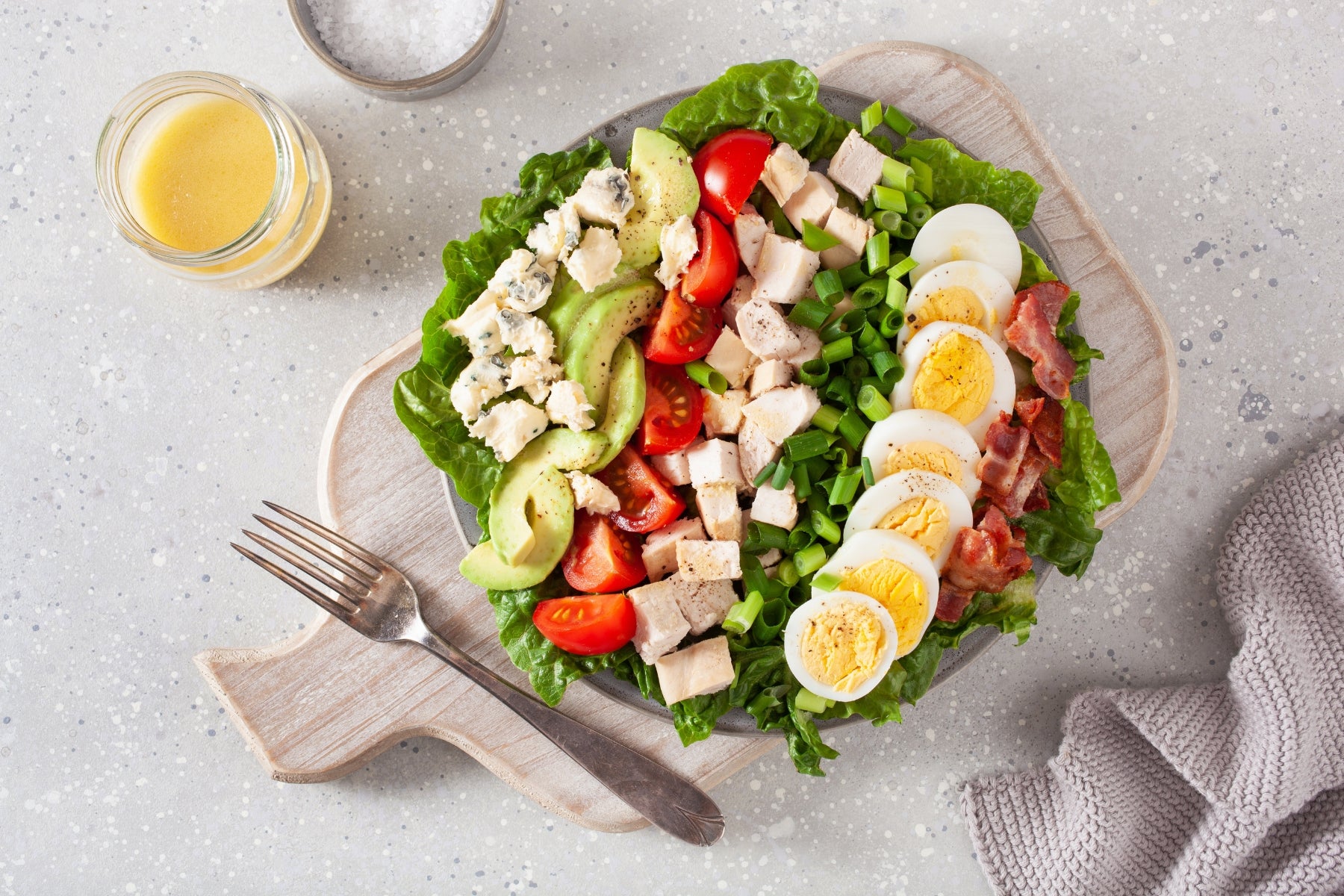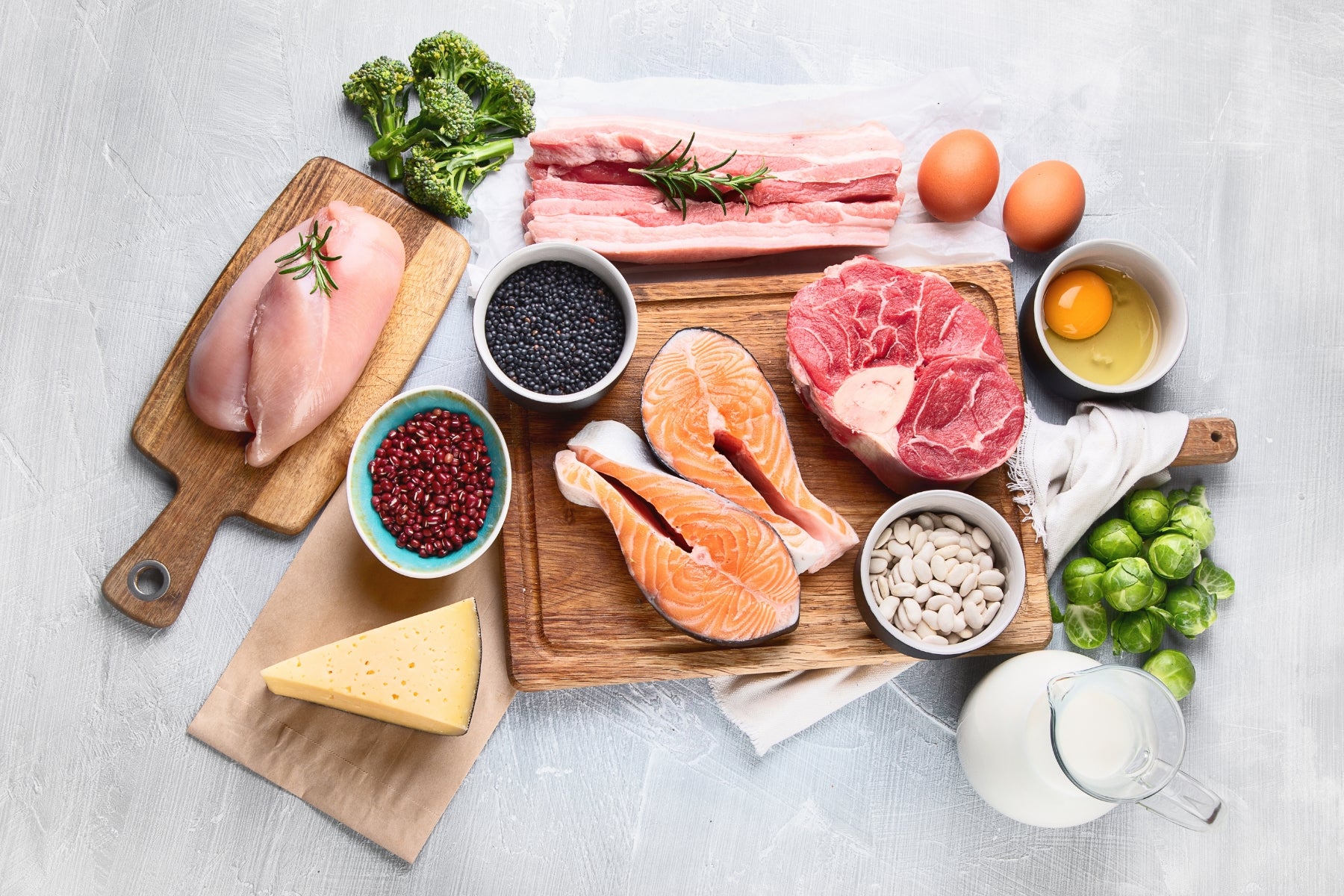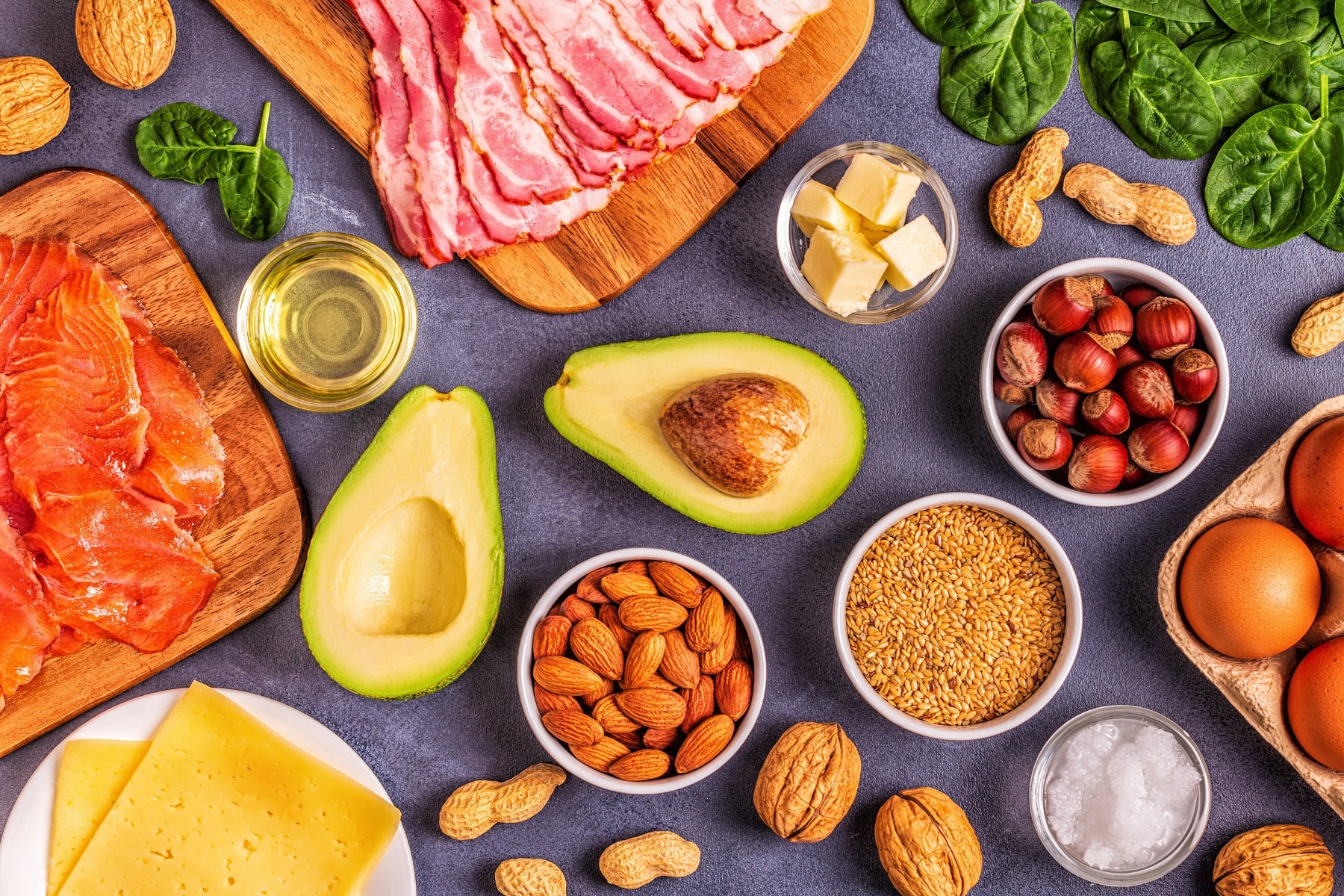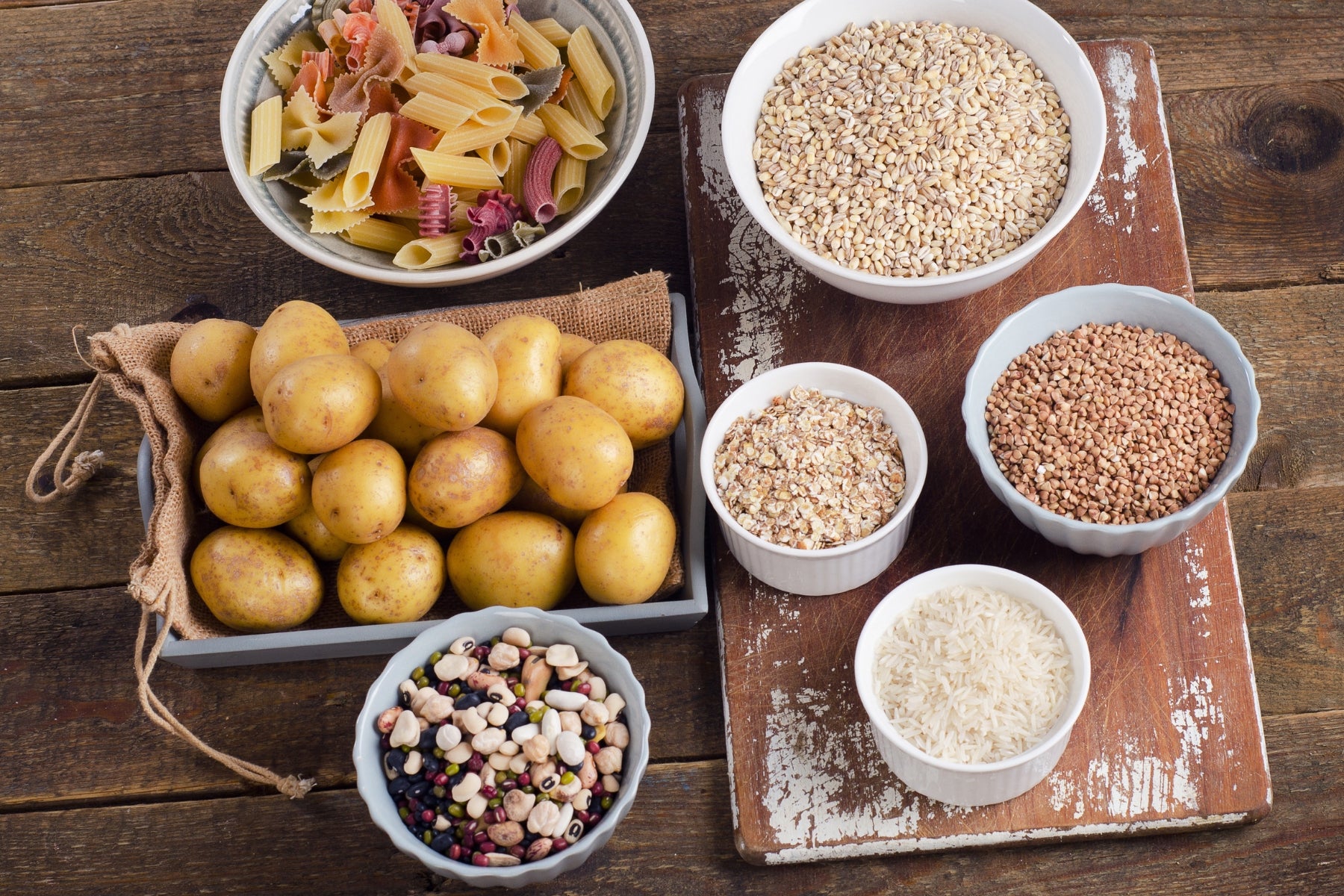
Low carb: The low -carbohydrate diet for your success
What is low carb?
Definition of low carb
Low Carb stands for "low carbohydrates", i.e. a low -carbohydrate diet. In particular, carbohydrates made of sugar and strength are reduced and instead increasingly protein, healthy fats and fiber from vegetables are absorbed.
Basic principles of low carb nutrition
- Reduce carbohydrates greatly
- Moderately increase protein
- Install healthy fats such as olive oil, nuts, avocados
- Eat a lot of vegetables
- Avoid sugar and white flour products
Different to other nutritional forms
In contrast to a low -fat diet, low carb relies on healthy fats. In contrast to a ketogenic diet, in which extremely little carbohydrates are absorbed, Low Carb allows a moderate amount of carbohydrates, especially from vegetables.
Advantages of low carb
Weight loss
Studies show that low carb is effective for weight loss. By avoiding sugar and strength, the insulin level is kept low, which promotes fat loss.
More energy and less cravings
Carbohydrate -rich meals quickly increase the blood sugar and then drop again. This leads to cravings and fatigue. With low carb, blood sugar and energy level remain more constant.
Health advantages
Research suggests that low carb can reduce the risk of type 2 diabetes, heart diseases and certain types of cancer. Inflammatory processes in the body are also reduced.
Eating at low carb
Recommended foods
- Vegetables like broccoli, spinach, zucchini, paprika
- Legumes such as lentils and beans
- Egg
- Fish and lean meat
- Nuts and seeds
- Healthy oils such as olive oil or coconut oil
Foods that should be avoided
- Sugar and sweets
- White flour products such as bread, pasta, pastries
- Soft drinks and fruit juices
- potatoes
- Finished products and fast food
Low carb recipes
Low carb recipes are delicious and easy to prepare. Classics such as omelettes, salads or smoothies can be installed perfectly into your low carb nutrition. From simple snacks such as vegetable sticks with dip to sophisticated main dishes such as zucchini lasagna or cauliflower pizza-there are no limits to creativity! Get inspiration in cookbooks or on recipe pages on the Internet. There you will find hundreds of ideas for low -carbohydrates that are quickly prepared and taste fantastic. So your low carb cuisine is guaranteed to never be boring!
Low carb vegan?
Even as a vegan, you don't have to do without pleasure at low carb. There are numerous vegetable protein sources such as tofu, temeh, seitan or legumes that can be transformed into delicious dishes. Combined with fresh vegetables, healthy fats from nuts, seeds or avocado and whole grain products in moderation, this results in a full -fledged diet without animal products. Pay attention to a sufficient supply of nutrients such as vitamin B12, iron, zinc and omega-3 fatty acids. With a little creativity you also conjure up vegan delicious low carb meals that provide you with energy and support you in losing weight.
Implementation in everyday life
Preparation and planning
Good preparation is important to implement low carb successfully. Plan your meals and purchases in advance. I always have healthy snacks like nuts or raw food with me.
Food on the way and in the restaurant
Low carb can also be implemented on the go. Choose clear soups, salads, fish or meat with vegetables. Please serve sauces and dressings separately.
Low carb in family and work
Talk to your family about your change in diet. Maybe you can motivate them to participate. However, a low carb diet is not suitable for children and adolescents. Even meals and snacks brought with you help at work.
Possible difficulties and solutions
Demand for carbohydrates
Especially at the beginning of low carb, the desire for sweet and carbohydrates can be great. Stay consistent, with time it decreases. Treat yourself to a small low-carb can.
Avoid nutrient deficiencies
At low carb, pay attention to a balanced diet to avoid nutrient deficiencies. Eat a lot of nutrient -rich vegetables and treat yourself to legumes. Pay attention to sufficient fiber.
Social pressure
Not everyone will understand your change in diet. Stay polite, but definitely. Charge friends for the low-carb cooking evening. Or look for like -minded people in low carb forums.
Who particularly benefits from low carb?
Overweight
Low carb is ideal for people with a lot of overweight. The low -carbohydrate diet supports long -term weight loss without starving.
diabetic
Type 2 diabetics benefit enormously from low carb. By reducing carbohydrates, blood sugar can be stabilized and medication can often be reduced.
sportsman
Athletes also use low carb to improve their performance and reduce body fat. A low -carbohydrate diet is particularly popular in endurance sports to boost fat burning.
Conclusion
Low carb is a healthy and effective way to lose weight, stabilize blood sugar and become fit. The choice of the right food and some preparation are important. This is how low carb is fun and you benefit from all the advantages of this diet. Try it out and start your low carb life today!
Frequently asked questions
What can you eat at low carb?
At low carb, protein -rich foods such as meat, fish, eggs and legumes as well as healthy fats from nuts, seeds, avocados or oils are on the menu. Carbohydrates are mainly absorbed by vegetables. Dairy products and fruit in moderation are also allowed.
What shouldn't you eat at low carb?
At low carb you should do without heavily processed foods, sugar, white flour, soft drinks and hearty snacks such as chips. Strong foods such as potatoes, rice or pasta as well as most baked goods are rarely on the menu.
Which bread can you eat at low carb?
Classic white flour breads are taboo at low carb. Instead, you can bake bread from nut, coconut or almond flour. Protein -rich low carb breads with flax seeds, chia seeds or sesame flour are also a good choice.


